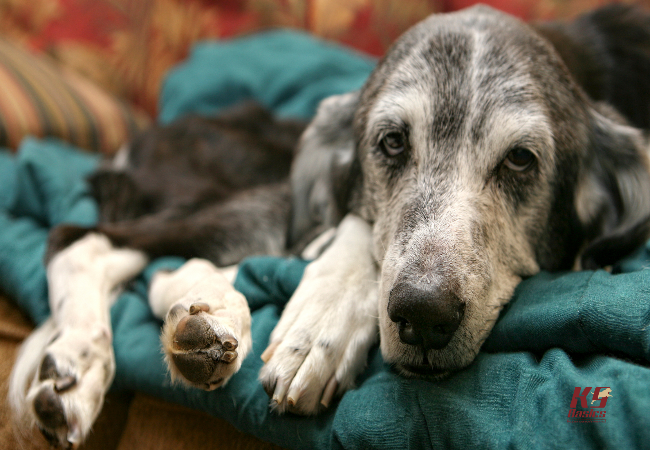How to Support Senior Dogs Emotionally Vet Advice for Aging with Dignity🐶✨

In this article
How to Support Senior Dogs Emotionally Vet Advice for Aging with Dignity🐶✨
By Dr. Duncan Houston BVSc
Grey muzzles, slower walks, deeper naps—senior dogs are full of love and loyalty, but they also face new emotional needs. Beyond joint supplements and softer beds, older dogs often need help coping with confusion, anxiety, and physical decline.
I’m Dr. Duncan Houston. In this article, I’ll share how to support your aging dog not just physically, but emotionally—so they feel secure, respected, and loved in every stage of life.
🧠 Emotional Changes in Senior Dogs
As dogs age (typically 7+ years, depending on breed), you may notice:
- 😕 Disorientation or pacing at night
- 📉 Increased startle response or sensitivity
- 🧍 Clinginess—or the opposite, withdrawal
- 🔁 Repetitive behaviors or confusion about routines
These can be signs of:
- 🧠 Canine cognitive dysfunction (doggy dementia)
- 😓 Anxiety due to vision, hearing, or joint changes
- 💤 Shifting sleep cycles and restlessness
✅ Vet Strategies for Supporting Emotional Health
1. Keep Their World Predictable
- 🕐 Feed, walk, and rest on a consistent schedule
- 📍 Avoid rearranging furniture or changing routines abruptly
2. Offer Reassurance Without Babying
- 🤲 Stay close, speak calmly, but don’t smother
- 🧠 Give them time to process and make decisions on their own
3. Support Their Senses
- 👂 Use more verbal cues if vision is fading
- 👃 Add scent-based enrichment to help navigate the home
4. Modify the Environment for Confidence
- 🛏️ Nonslip rugs and low-entry beds for stability
- 🌙 Nightlights to reduce evening anxiety
- 🔊 White noise if they’re startled by distant sounds
5. Encourage Gentle Engagement
- 🎾 Use food puzzles, slow sniff walks, or “find it” games
- 📖 Mental enrichment supports memory and reduces anxiety
🧪 Medical Support Worth Exploring
- 🧠 Supplements for cognitive support (e.g., SAMe, omega3s, antioxidants)
- 💊 Antianxiety meds or natural calming aids (vetguided only)
- 🩺 Routine senior bloodwork to catch subtle health shifts early
💬 How to Talk to Your Senior Dog
Yes—they understand tone, rhythm, and intent.
- 📣 Use soft, happy tones—not baby talk or shouting
- 🧘 Avoid abrupt handling or frustration when they move slowly
- 🎶 Maintain connection through touch, scent, and calm presence
🎁Gear That Supports Senior Dog Comfort
- Explorer Harness – Even pressure distribution reduces discomfort on sensitive joints
- Bungee Lead – Absorbs jarring movement for smoother walks
- Dual Pocket Dispenser – Keep treats and calming tools ready on the go
💬 What Dog Parents Say
“Our 12yearold lab started pacing at night. A calming routine and Woopf harness helped her feel safe again.” – Liz & Bella
“Woopf’s soft lead and consistent schedule gave my aging shepherd peace of mind—and his spark back.” – Sam & Hugo
👩⚕️ Want a VetCreated Senior Wellness Plan?
Send your dog’s age, behavior, and mobility changes to Ask A Vet for a personalized plan to support their body *and* mind as they age.
Final Thoughts
Senior dogs don’t just need physical care—they need emotional respect. By listening to their changes, supporting their senses, and offering comfort without overprotection, you give them what they truly deserve: a graceful, dignified life filled with love.






